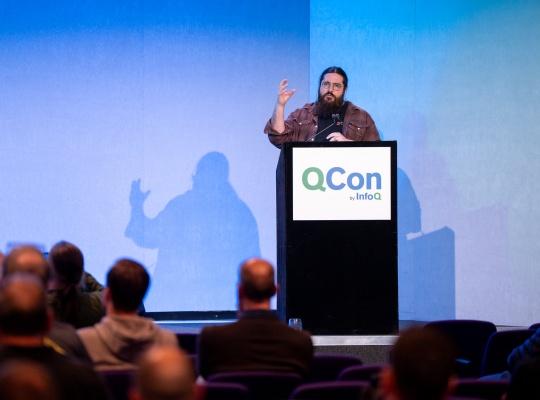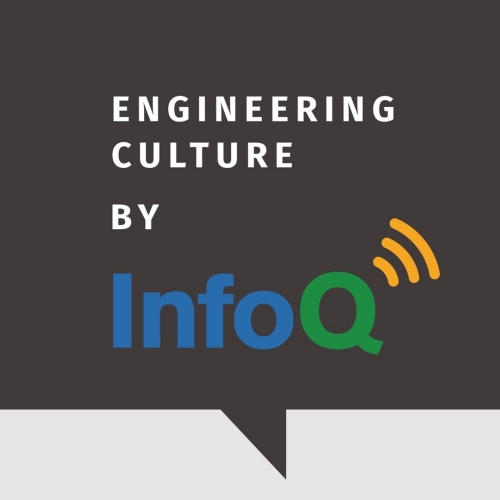Codetown
Codetown ::: a software developer's community
Gatorjug with Howard Lewis Ship
Event Details
Time: February 12, 2014 from 6pm to 9pm
Location: Santa Fe College - Building S room S-318
Street: 3000 NW 83 St (Building S room S-318
City/Town: Gainesville
Website or Map: http://www.codetown.us/group/…
Phone: 321-252-9322
Event Type: meeting
Organized By: Michael Levin
Latest Activity: Feb 12, 2014
Event Description
Join us for a Clojure talk by Tapestry author Howard Lewis Ship. Stay tuned for details!
Here's a little about what Howard plans to cover:
"Clojure is a fascinating new(er) programming language, created by Rich Hickey, that combines the ubiquity and performance of Java with the power and expressiveness of Lisp. Clojure excels at interesting problems, especially those involving concurrency, but can also freely interoperate with standard Java. Clojure developers quickly become passionate about this odd little hybrid: it's easy to learn, yet deeply powerful, and is at the heart of a vibrant and exciting eco-system of tools and libraries."
Howard Lewis Ship, the creator and lead developer for the Apache Tapestry project, is respected in the Java community as an expert on web application development, dependency injection, Java meta-programming, and developer productivity. He has well over twenty years of full-time software development under his belt, with over fifteen years of Java. He cut his teeth writing customer support software for Stratus Computer, but eventually traded PL/1 for Objective-C and NeXTSTEP before settling into Java. For the last year, Howard has been working full time in Clojure as well.
Howard is a frequent speaker at JavaOne, NoFluffJustStuff, ApacheCon, and other conferences, and the author of "Tapestry in Action" for Manning (covering Tapestry 3.0).
Howard is an independent consultant, offering training, mentoring, and project work in Tapestry as well as other interesting technologies such as Clojure and AngularJS. He lives in Portland, Oregon with his wife Suzanne, and his children, Jacob and Olivia.
http://howardlewisship.com/
Comment Wall
Comment
-
Comment by Michael Levin on February 12, 2014 at 12:02pm
-
Ha ha! That's funny! I looked at the Clojure site yesterday - and we had a very, very innpvative solution to a contest that was written using Clojure. If you search Codetown for Clojure, you'll see the Wari game and the source is available, too. Amazing bang for buck. See you soon.
-
Comment by Howard M. Lewis Ship on February 12, 2014 at 11:37am
-
I got that, it's just that I love games as much as I love Clojure!
-
Comment by Michael Levin on February 11, 2014 at 2:45pm
-
Howard, there's a university group interested in computer games meeting in the room we sometimes have. Dan mentioned that to explain why we're meeting in S-318.
-
Comment by Howard M. Lewis Ship on February 11, 2014 at 2:35pm
-
Gamers in S-326 ... now I'm conflicted.
-
Comment by Kevin Neelands on February 5, 2014 at 8:01pm
-
Don't forget to make some flyers and email me. I can put them up this weekend.
-
Comment by Michael Levin on January 31, 2014 at 12:11pm
-
Thanks, Dan! Folks, GatorJUG Co-Chairman Dan is the man to thank for arranging our venue for a long time at beautiful Santa Fe College. If you haven't met Dan or seen the Spanish moss and majestic trees at the Santa Fe campus here in Gainesville, this meeting is your chance! Come on out and bring a friend! This will be a learning opportunity and a way to meet other software developers like you. All the best, Michael
-
Comment by Dan Lackey on January 30, 2014 at 10:18am
-
We have room S-318. The gamers have our S-326.
Notes
Welcome to Codetown!
 Codetown is a social network. It's got blogs, forums, groups, personal pages and more! You might think of Codetown as a funky camper van with lots of compartments for your stuff and a great multimedia system, too! Best of all, Codetown has room for all of your friends.
Codetown is a social network. It's got blogs, forums, groups, personal pages and more! You might think of Codetown as a funky camper van with lots of compartments for your stuff and a great multimedia system, too! Best of all, Codetown has room for all of your friends.
Created by Michael Levin Dec 18, 2008 at 6:56pm. Last updated by Michael Levin May 4, 2018.
Looking for Jobs or Staff?
Check out the Codetown Jobs group.
InfoQ Reading List
Rspack Releases Version 1.7: Final 1.x Update Before 2.0 Transition

Rspack 1.7 has launched, enhancing performance and plugin compatibility as it prepares for a major version transition. Key features include improved SWC plugin compatibility, native asset importing as bytes, and default lazy compilation for dynamic modules. With performance gains reported up to 80%, Rspack offers a faster, Rust-based alternative to webpack while maintaining API compatibility.
By Daniel CurtisPresentation: WASM Components are a FaaS' Best Friend

Laurent Doguin shares why Wasm’s cold-start performance and security model make it the ideal FaaS runtime. He discusses the WebAssembly Component Model for polyglot interoperability and explains how to build distributed, provider-based architectures using CNCF wasmCloud and NATS. Ideal for architects looking to scale "scale-to-zero" infrastructure without the overhead of heavy containers.
By Laurent DoguinArticle: Autonomous Big Data Optimization: Multi-Agent Reinforcement Learning to Achieve Self-Tuning Apache Spark

This article introduces a reinforcement learning (RL) approach grounded in Apache Spark that enables distributed computing systems to learn optimal configurations autonomously, much like an apprentice engineer who learns by doing. The author also implements a lightweight agent as a driver-side component that uses RL to choose configuration settings before a job runs.
By Hina GandhiPodcast: The Technical Founder's Path: Code, Leadership, and Balance

In this podcast, Shane Hastie, Lead Editor for Culture & Methods, spoke to Trisha Ballakur about transitioning from coder to startup CEO, balancing technical leadership with business development, and avoiding burnout on the journey.
By Trisha BallakurMicrosoft Adds Custom Copilot Agents for .NET Developers with C# and WinForms Experts

Microsoft and GitHub have expanded the Copilot ecosystem with the first .NET-focused GitHub Copilot custom agents, designed to improve productivity and code quality for C# and Windows Forms developers. The announcement, part of the broader Copilot custom agents’ rollout, introduces two purpose-built agents: C# Expert and WinForms Expert in the form of agent instruction Markdown files.
By Edin Kapić
© 2026 Created by Michael Levin.
Powered by
![]()
RSVP for Gatorjug with Howard Lewis Ship to add comments!
Join Codetown